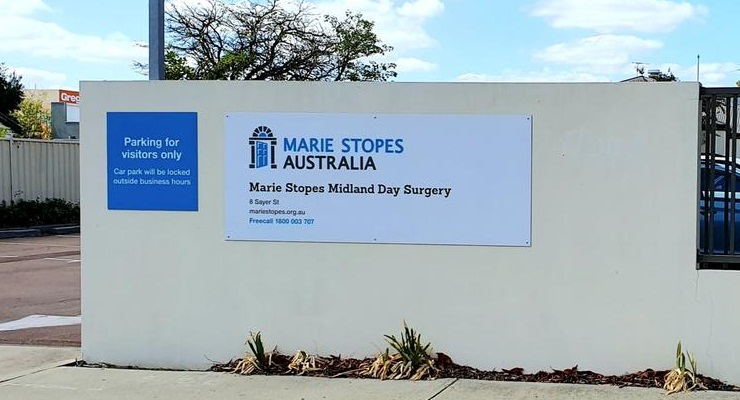
Accessing abortion in Australia has been called a postcode lottery. Many women in regional areas have to travel hundreds of kilometres — and in some states pay hundreds of dollars — to terminate pregnancies.
Now accessibility to reproductive clinics has just dropped for those travelling from regional areas after leading national abortion provider Marie Stopes closed in Townsville, Rockhampton, Southport and Newcastle.
Access to health services in regional areas is a growing concern — and it’s not limited to reproductive health.
Why are surgical abortions so important?
Abortion has become easier in recent years: in March, South Australia became the last state to decriminalise it, and in 2013 two oral termination medications, mifepristone and misoprostol, were added to the Pharmaceutical Benefits Scheme. Roughly one in six pregnant Australians have had an abortion by their mid-30s.
On paper these are excellent advancements, but on the ground it’s not so simple. Medical abortions can be accessed up to nine weeks after conception — but by that stage chief executive officer of Women’s Health NSW Denele Crozier tells Crikey many women have only just realised they’re pregnant.
“There are so many circumstances where the nine-week mark is too early for priority populations or for victims of domestic violence,” she said. Some women have to covertly plan their healthcare access.
And while the pills can be prescribed via telehealth, doctors can conscientiously object to providing abortions — a huge barrier in parts of regional Victoria. Fewer than 5% of GPs are registered to prescribe these pills.
Even if the doctor is willing, Crozier says the infrastructure is not always in place: the doctor must have access to ultrasound equipment to diagnose the pregnancy; in cases where contraception has failed, intrauterine devices must be removed; there has to be a hospital nearby in case of an emergency, such as excessive bleeding.
Many women also can’t take the pills because of allergies or other problems, or may opt for surgical abortion as they’re faster with less bleeding and cramping and mothers can continue breastfeeding.
The Marie Stopes example
Marie Stopes says it had to shut its doors because of financial pressures, struggling to find skilled medical staff, and adapting during COVID-19. Its four closed clinics employed more than 40 staff, and 5000 patients a year used its reproductive health services.
Its managing director, Jamal Hakim, says closing was a tough decision: “We just can’t make these clinics work financially so we’re going to work with government and partners to continue to ensure safe abortion care is available to all because abortion is a fundamental human right in a modern democracy.”
What does this say about our health system?
Crozier says many women have to travel hundreds of kilometres for an abortion, and COVID has complicated things — some women can’t be flown interstate for late-term procedures and are forced to carry their pregnancy to full term.
Cash is also an issue: in NSW abortions are available only through private providers, costing hundreds of dollars for the procedure on top of travel and accommodation costs.
Access to health services in regional areas is a growing concern. By 2030 there’s estimated to be a shortage of 9298 full-time GPs nationwide, representing about a quarter of the GP workforce. It’s such an issue in NSW a Senate inquiry has been launched into the state of outer metro, regional and rural health. It is expected to release its report next year.
“Rural health is seriously under the pump,” Crozier said.








Why is this so? Is it simply budget issues, Covid times or worse, ‘pro-life’ religious and political influence over such health matters?
NSW, ultra conservative Liberal, Nationals and Labor. That’s why! Pathetic.
This like other Health issues in the bush,is a blot on the record of so called country party ie National’s.For most of the time since federation,the Nats one way of an other have been in power with the liberal party, you would think that they would look after women in the bush,evern if it was after their sheep
It’s a man’s world.
That is a highly inappropriate pic (from stock library so no excuse) showing a pregnancy well into the 2nd if not third trimester.
An abortion so late is contraindicated on so many grounds.
is this the result of not having access to safe abortions?
Stop prioritising placements in our universities for foreign full-fee-paying students. Greatly increase and fund, to cover future replacement needs, places for Australian citizens – especially in our medical schools. Stop poaching highly skilled people from developing countries, whose skills are more desperately needed there than here.
Ditto, nursing and all other health related disciplines. That is surely what ten generations since white settlement intended when they established and built our university system. And the current government should be all in favour given that, in the Covid emergency, they tossed all the foreign students under the bus.
We don’t value nurses, doctors, and teachers (as well as plenty of other professions) enough. We have the rich looking after the rich, pay lawyers and financial ‘wizards’ enormous amounts to make the rich richer. As if they care if Shazza out west has access to education or health